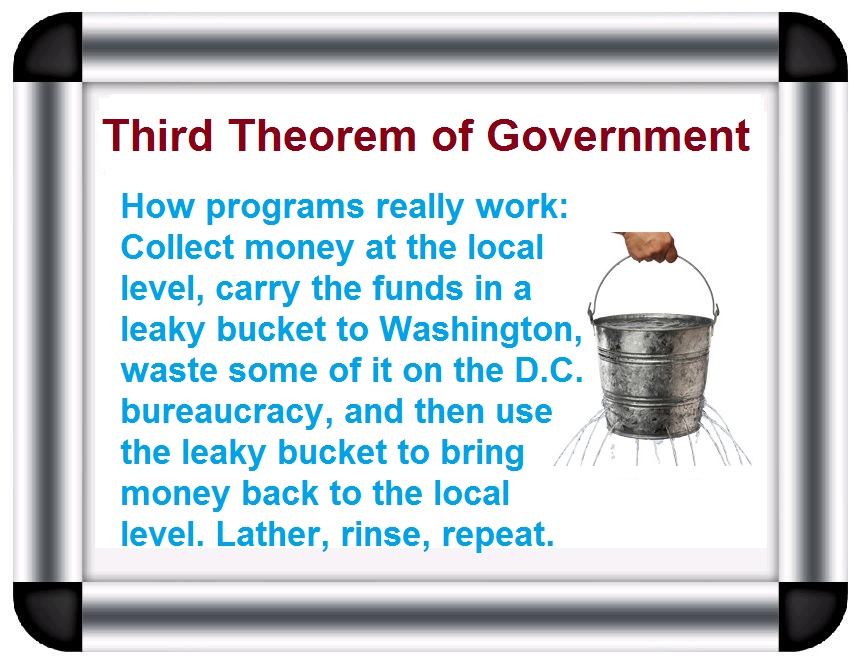One of the big problems with centralization is that taxes are imposed on people living in communities across the country.
The money then goes to Washington, where some of it is spent on bureaucracy (including the shadow bureaucracy), and then funds are sent back out to communities.
That’s a recipe to make government more expensive and inefficient.
Let’s now apply this insight to the debate over how best to rebuild the bridge that recently collapsed in Baltimore after being hit by a cargo ship.
In his New York Times column, Paul Krugman predictably argues that all taxpayers should be responsible for rebuilding the bridge in Maryland.
President Biden pledged that the federal government would “pay the entire cost of reconstructing” the bridge. This would clearly be the right thing to do… Biden will probably be able to get funds for rebuilding, but it’s by no means a sure thing. …It’s not foolish to worry that MAGA hard-liners will block aid to Maryland… It was clear through most of the Obama years that Republicans wanted to prevent good things from happening on a Democratic president’s watch. Under Obama, G.O.P. legislators squeezed federal spending after they took control of the House, supposedly because they were worried about government debt, only to open up the taps once Trump took office. …will partisanship and conspiracy theorizing get in the way of rebuilding the Key Bridge? …this is no time to be complacent.
By contrast, Richard Rahn explains in the Washington Times that there is a better approach.
Last week, Mr. Biden announced that the federal government would pay to replace the huge bridge that collapsed in the Baltimore harbor. More precisely, the president implicitly said that taxpayers across the country would pay for the bridge replacement (that is, if Congress agrees) rather than the good people of Baltimore and surrounding areas who actually use and reap the benefits of the bridge. Well before the country was formed, there was a long-standing tradition that those who directly benefited from infrastructure improvements ought to pay for them…
Many roads and bridges were built by private parties or by local and state governments that charged tolls for their use. …Many large bridges — owned by government entities — charge tolls for their use.
Typically, a bond issue is sold to fund the construction of the bridge, and the tolls are used to pay off the principal and interest on the bonds. Some states, including Virginia, have contracted with large construction companies to build and operate (including the collection of tolls) major highways or other transportation infrastructure projects.
All of this makes sense in that those who directly benefit pay the costs. When all spending comes out of a common pot unrelated to its funding, it is too often viewed as “free money” by politicians and many citizens who fail to think through the consequences.
Richard is right, of course, about the dangers of “free money.” That’s a recipe for an entitlement mentality.
And he’s also right that the user-pays approach is morally and economically superior.
But I want to add to the debate by making a different point. What’s being overlooked is that the Francis Scott Key Bridge already was a toll bridge.
As such, it would be very simple (as Richard points out) to contract with a private company to build and operate a new bridge. The company pays the up-front costs and then gets repaid over time with money from tolls.
As is happening already with many bridges and highways across the nation (and world).
I’m guessing that Maryland’s greedy politicians are not in favor of that approach. Why? Because they probably want federal funding to build the bridge, and then they’ll still levy tolls so they have a new pot of money to spend.
P.S. The ship that crashed into the bridge presumably had insurance and I’m surprised that there has not been discussion about using a settlement to finance new construction.
P.P.S. Krugman was correct when he noted that Republicans became big spenders with Trump in the White House.
P.P.P.S. One takeaway is that we should get the federal government out of the transportation business.

No comments:
Post a Comment